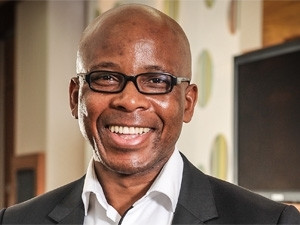
Microsoft SA this morning took the wraps off its television white spaces (TVWS) project at an official launch in Limpopo, and said it was keen to see the pilot extended further.
Microsoft has invested some $300 000 into providing free connectivity to five schools in the province, as well as 30 tablets and other related infrastructure, such as projectors, as part of its education initiative. It has partnered with other companies such as Multisource and the Department of Science and Technology.
The project, conceptualised about eight months ago, has been running for about a month, with tablets being put to use in classrooms after teachers were trained to use the equipment to prepare and present lessons.
Microsoft SA MD Mteto Nyati, addressing the media and several government representatives, said he would like to see the South African government investigating how the project can be scaled so that all South Africans can benefit inclusively.
Nyati says he is looking forward to engaging, along with University of Limpopo vice chancellor Mahlo Mokgalong, with the communuications regulator, the Independent Communications Authority of SA, and potential partners to have the concept extended to additional schools. The university is the hub for the project in the province.
Mokgalong adds projects such as these must be embraced.
TVWS takes advantage of the spare frequency around television channels to use this space to provide broadband. The signal sent out reaches a 13km radius and Microsoft sets up the network so that each user receives speeds of at least 5Mbps, explains Paul Garnett, director of technology policy for Microsoft.
Microsoft's project follows 10 others the company has done around the world, including in Kenya, Tanzania and Ghana, says Garnett. He adds the company is talking to Namibia and Botswana about similar initiatives.
The relatively new technology is ideal for rural areas, because these tend to have more free space around television channels, notes Garnett. He adds the technology can be used for other applications, such as health and in smart cities, and the country is innovating at the same pace as other countries. "This is going to have an impact around the world."
Google's trial project, in the Western Cape, using the same technology - in conjunction with partners - was completed successfully towards the end of last year.
Share